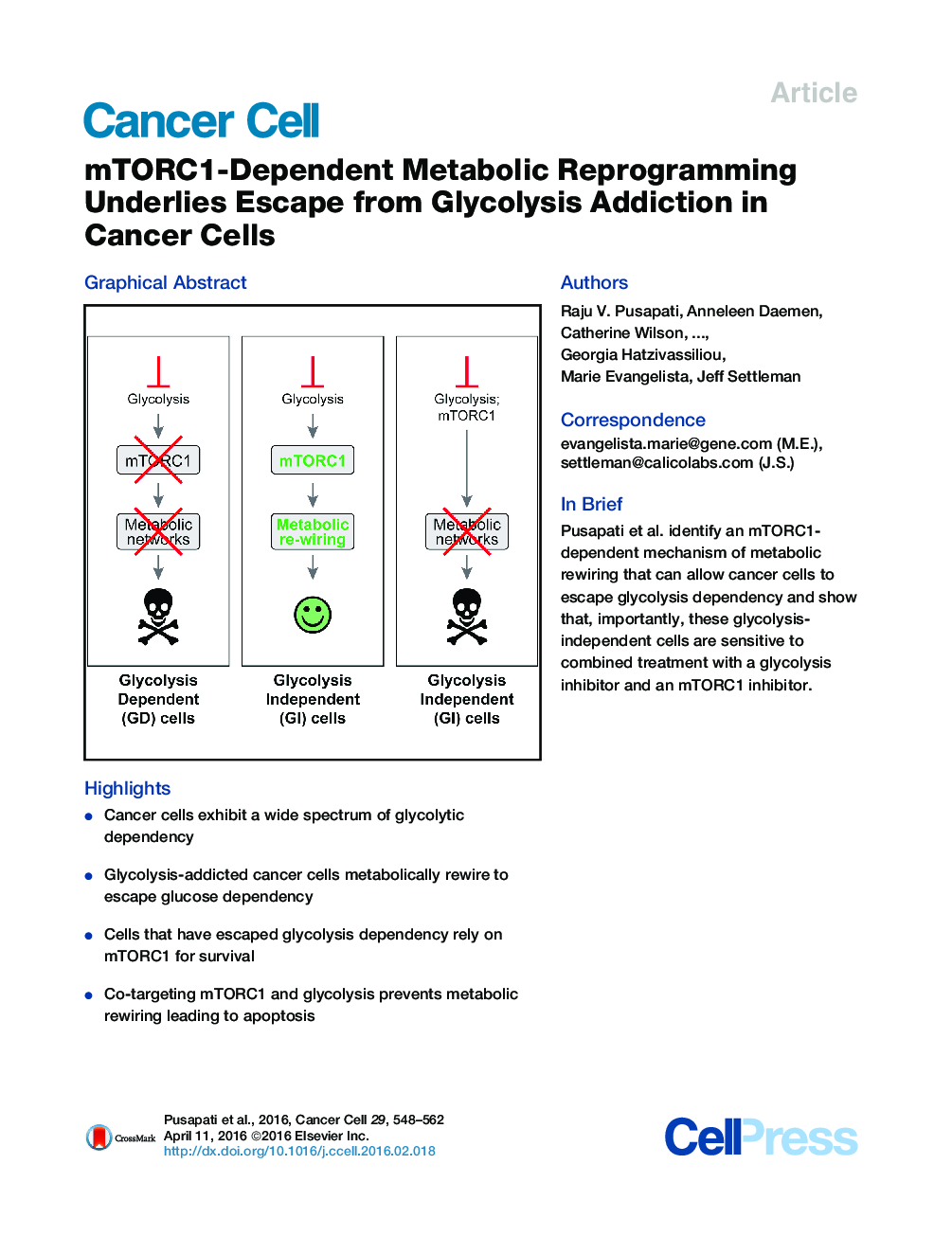| Article ID | Journal | Published Year | Pages | File Type |
|---|---|---|---|---|
| 2106776 | Cancer Cell | 2016 | 15 Pages |
•Cancer cells exhibit a wide spectrum of glycolytic dependency•Glycolysis-addicted cancer cells metabolically rewire to escape glucose dependency•Cells that have escaped glycolysis dependency rely on mTORC1 for survival•Co-targeting mTORC1 and glycolysis prevents metabolic rewiring leading to apoptosis
SummaryAlthough glycolysis is substantially elevated in many tumors, therapeutic targeting of glycolysis in cancer patients has not yet been successful, potentially reflecting the metabolic plasticity of tumor cells. In various cancer cells exposed to a continuous glycolytic block, we identified a recurrent reprogramming mechanism involving sustained mTORC1 signaling that underlies escape from glycolytic addiction. Active mTORC1 directs increased glucose flux via the pentose phosphate pathway back into glycolysis, thereby circumventing a glycolysis block and ensuring adequate ATP and biomass production. Combined inhibition of glycolysis and mTORC1 signaling disrupted metabolic reprogramming in tumor cells and inhibited their growth in vitro and in vivo. These findings reveal novel combinatorial therapeutic strategies to realize the potential benefit from targeting the Warburg effect.
Graphical AbstractFigure optionsDownload full-size imageDownload high-quality image (150 K)Download as PowerPoint slide
